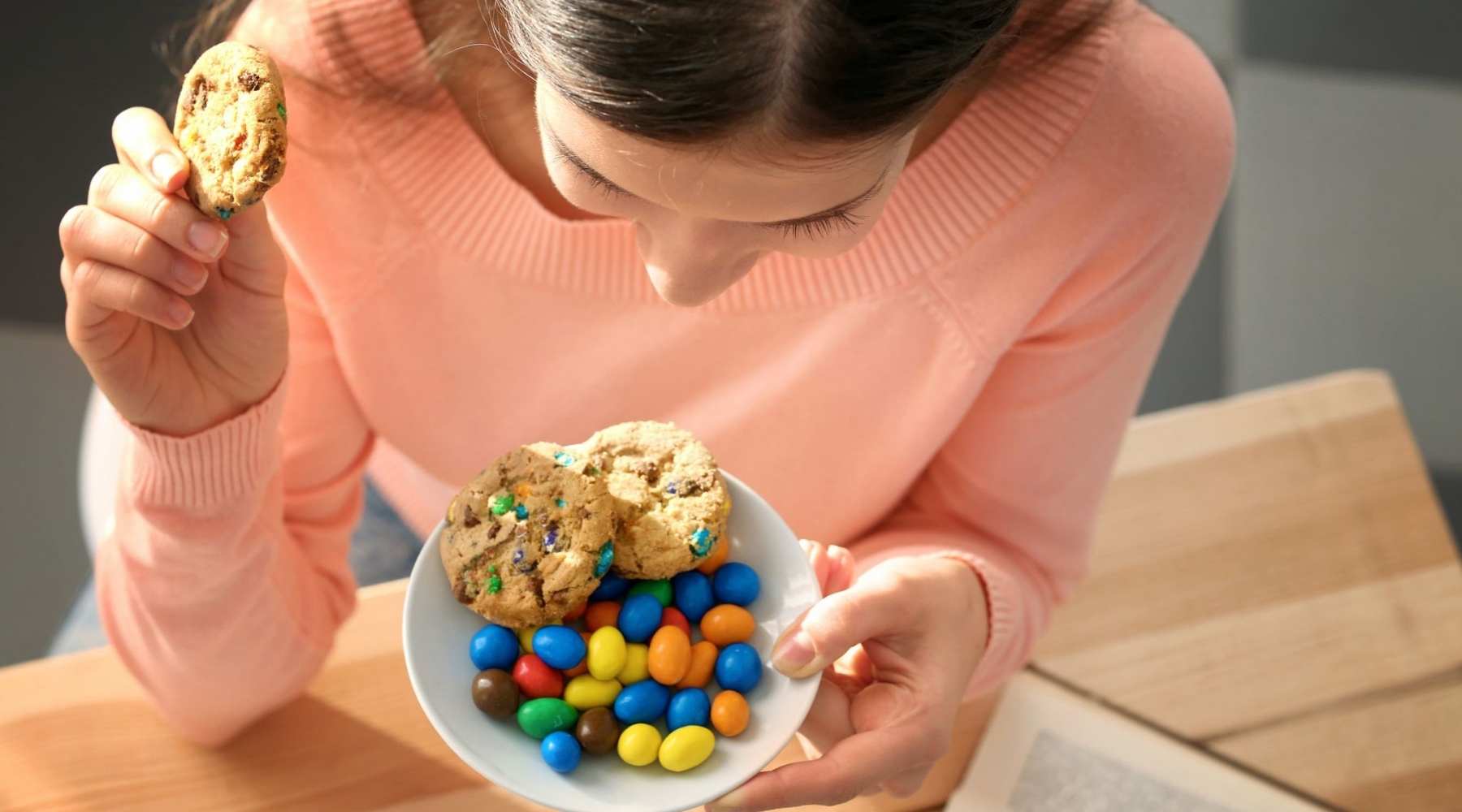Completing a juice cleanse can feel like a major accomplishment. After days of relying solely on nutrient-rich liquids, your body may feel refreshed, but the transition back to solid foods requires careful planning. The goal is to ease your digestive system into regular eating, allowing your body to fully absorb the cleanse's benefits without undoing its effects. Here’s a comprehensive guide on what to eat post-cleanse, how to handle common symptoms, and tips for sustaining your results in the long term.
Understanding the Benefits and Challenges of a Juice Cleanse

A juice cleanse, often used as a short-term detox, floods your body with vitamins and minerals, giving your digestive system a break from processing solid foods. This approach can potentially reset your gut health, reduce bloating, and enhance energy levels. However, some health experts point out that juice cleanses may lack essential nutrients like fiber and protein, which are necessary for sustained energy and muscle maintenancese can offer a boost in hydration and certain antioxidants, it can also cause temporary nutrient imbalances, leading to issues like fatigue or blood sugar fluctuations. Understanding these benefits and limitations can help you plan an effective post-cleanse diet that maximizes benefits while addressing any nutritional gaps.
How to Transition Back to Solid Foods: A Step-by-Step Guide
After a juice cleanse, the digestive system needs time to adjust to solid foods. Here’s a step-by-step plan to make that transition as smooth as possible:
-
Days 1–2: Start with light, easy-to-digest foods like broth-based soups, smoothies, and soft fruits (e.g., berries, melon).
-
Days 3–4: Add in more complex foods like steamed vegetables, small portions of brown rice, and oatmeal. These will provide gentle fiber and essential carbohydrates.
-
Day 5 Onward: Gradually introduce lean proteins (e.g., chicken, fish, tofu) and healthy fats (e.g., avocado, olive oil), which aid in satiety and nutrient absorption. By the end of the week, you can include moderate portions of whole grains, beans, and nuts for a balanced diet.
Foods to Eat After a Juice Cleanse

Focusing on whole, nutrient-dense foods can help maintain the cleanse's positive effects. Here are some ideal food choices:
1. Probiotic-Rich Foods
Probiotics are beneficial bacteria that support gut health. After a cleanse, foods like yogurt, kefir, and sauerkraut can help restore any microbial balance that may have shifted. These foods aid digestion and support a stronger immune system .
2. Fibeetables
While juice provides nutrients, it often lacks fiber, which is vital for digestive health and satiety. Start with cooked, low-fiber vegetables like carrots, zucchini, and bell peppers before moving on to higher-fiber choices like broccoli and kale.
3. Whole Grains
Whole grains like quinoa, brown rice, and oats are easy on the digestive system and provide sustained energy. Their fiber content can also support regular digestion and help stabilize blood sugar levels.
4. Hydrating Foods

Staying hydrated is essential post-cleanse. Fruits and vegetables with high water content, such as cucumbers, watermelon, and oranges, help maintain hydration while offering vitamins and minerals. Aim for at least 2–3 liters of water daily, adding a squeeze of lemon for extra flavor and nutrients.
5. Lean Proteins
Reintroduce protein gradually to help stabilize blood sugar and support muscle recovery. Soft plant-based proteins like lentils or chickpeas are easier to digest initially. You can gradually reintroduce lean animal proteins, such as chicken or fish, a few days after the cleanse.
Also Read - Beginner Guide to Juice Cleanse: Complete Guide
Foods to Avoid After a Juice Cleanse

To protect your digestive system and preserve the benefits of your cleanse, it’s wise to avoid certain foods that may be harsh on your stomach or introduce unnecessary toxins.
1. Processed Foods
Processed foods are often high in sugars, unhealthy fats, and preservatives, which can irritate the digestive system and lead to bloating. Stick with whole, minimally processed foods to help your body stay on track.
2. Refined Sugars

Excess sugar can cause blood sugar spikes and cravings. Avoid sweets, soda, and refined carbs for a few days post-cleanse to give your body time to rebalance its energy levels naturally.
3. Heavy Animal Products
Meat, cheese, and other heavy animal-based products can be difficult for a sensitive stomach to digest immediately after a cleanse. Avoid these foods for the first few days, opting for lighter plant-based proteins or soft dairy like yogurt.
Example 5-Day Meal Plan for After Your Juice Cleanse
Here’s a simple 5-day plan to help your digestive system ease back into regular eating:
Day 1
-
Breakfast: Smoothie with banana, spinach, and almond milk.
-
Lunch: Vegetable broth soup with zucchini and carrots.
-
Dinner: Steamed spinach and a small portion of sweet potato.
Day 2
-
Breakfast: Fresh berries with a dollop of plain yogurt.
-
Lunch: Quinoa salad with cucumber, tomatoes, and olive oil.
-
Dinner: Broccoli and kale soup.
Day 3
-
Breakfast: Oatmeal with a few blueberries and chia seeds.
-
Lunch: Roasted vegetables with a small portion of brown rice.
-
Dinner: Mixed greens with avocado and a handful of nuts.
Day 4
-
Breakfast: Whole-grain toast with avocado and a sprinkle of seeds.
-
Lunch: Steamed sweet potato with a side of sautéed greens.
-
Dinner: Brown rice with roasted vegetables and a soft-cooked egg.
Day 5
-
Breakfast: Smoothie bowl with berries, banana, and a small handful of granola.
-
Lunch: Quinoa with roasted veggies and chickpeas.
-
Dinner: Lean protein like grilled chicken with a side of steamed asparagus and brown rice.
Addressing Common Post-Cleanse Symptoms
After a juice cleanse, some people experience bloating, fatigue, or digestive discomfort. Here’s how to handle these symptoms effectively:
-
Bloating: This is common when reintroducing fiber. To ease it, eat smaller portions, chew your food thoroughly, and avoid carbonated beverages.
-
Fatigue: Lack of protein and other nutrients during a cleanse can cause tiredness. Reintroduce protein and complex carbs gradually to restore energy.
-
Digestive Discomfort: Transition to solid foods gradually and consider drinking herbal teas like peppermint or ginger, which are known to support digestion .
Tips for Maintainifter a Cleanse
Once your body has adjusted back to solid foods, consider these habits to keep the benefits going:
-
Prioritize Whole Foods: Continue with nutrient-dense fruits, vegetables, and whole grains.
-
Mindful Eating: Eat slowly and pay attention to your body’s hunger and fullness cues to avoid overeating.
-
Stay Hydrated: Regular hydration is essential for digestion, skin health, and energy.
Check Out - Visualizing the Effects of Juice Cleanse
FAQs About Life After a Juice Cleanse
Q: Can I drink coffee after a juice cleanse?
It’s best to wait a few days before reintroducing caffeine. When you do, start with a small amount and monitor how your body reacts.
Q: What about alcohol?
Like coffee, alcohol can stress your digestive system and disrupt sleep. It’s wise to avoid it for at least a week post-cleanse.
Q: How much water should I drink post-cleanse?
Hydration is crucial after a juice cleanse. Aim to drink at least 2–3 liters of water daily. You can enhance hydration by adding a pinch of Himalayan salt or lemon juice to your water, which can help balance electrolytes .
Q: Can I take supplements after my cleanse?
While a well-rounded diet should provide essential nutrients, some people may benefit from supplements, especially if they felt low energy during the cleanse. B vitamins and magnesium are particularly beneficial for energy and relaxation, but consult with a healthcare provider for personalized advice .
Q: Should I continue with intermittent fasting after a juice cleanse?
Intermittent fasting may help maintain the digestive rest that a juice cleanse provides. However, if you choose to incorporate fasting, do so gradually and avoid extreme fasting patterns immediately after the cleanse to avoid digestive stress .
Q: Can I exercise right after a cleanse?
It’s advisable to wait a few days before resuming intense physical activity. Instead, start with light exercises like walking, stretching, or yoga to allow your body to regain strength gradually .
Q: What should I do if I feel bloated after reintroducing solid foods?
Bloating is a common symptom when transitioning back to solid foods, particularly fiber-rich ones. You can help alleviate bloating by eating smaller meals, drinking ginger tea, and avoiding carbonated drinks .
Q: Is it okay to consume dairy products immediately after a cleanse?
Dairy can be heavy on the stomach and may cause digestive discomfort for some people. Consider waiting a few days before introducing dairy products and start with lighter options like yogurt or kefir, which contain probiotics that aid digestion .
Q: Can I have sweets or desserts after a cleanse?
It’s best to avoid refined sugars post-cleanse, as they can cause blood sugar spikes and cravings. If you’re craving something sweet, opt for naturally sweet foods like berries or a small amount of dark chocolate .
Q: How can I sustain the benefits of my juice cleanse long-term?
Maintaining the benefits of a juice cleanse involves continuing a diet rich in whole foods, fiber, and plant-based nutrients. Prioritizing a balanced diet, staying hydrated, and managing stress can help sustain energy, digestion, and overall wellness .








